Scholz's visit to China sends strong cooperation signals, and China and Germany join hands to draw a new picture for the future
The following article comes from the news broadcast, and the author's news broadcast
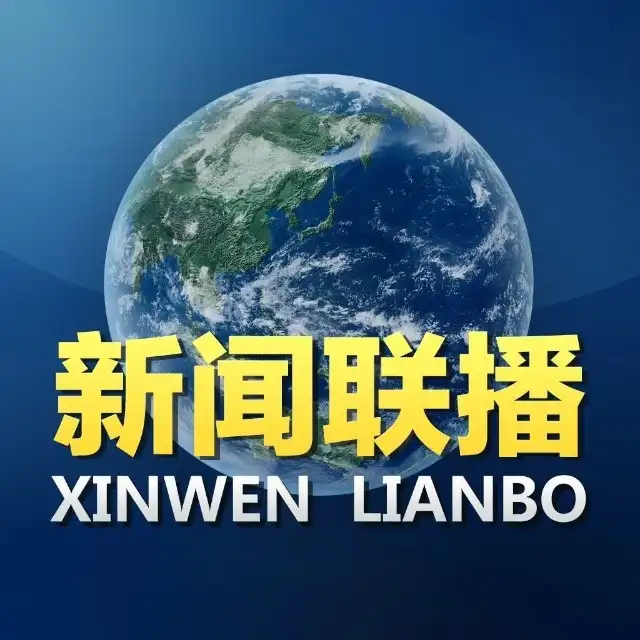 news Network.
news Network.
"News Network" is the official account of China Central Radio and Television Station's flagship news column "News Network". It is an important release platform for major current political reports and authoritative news.
Since early April, China has entered a busy "diplomatic season". On April 14, German Chancellor Scholz arrived in Chongqing to start his visit to China.
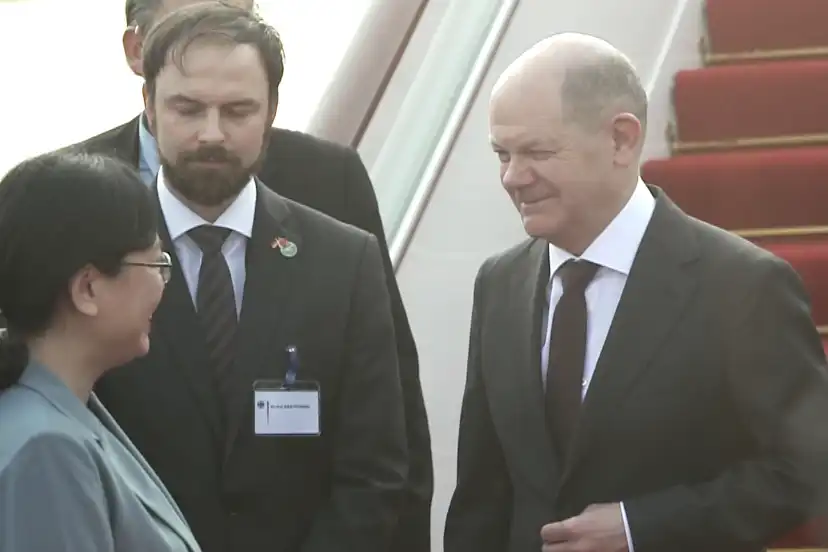
This is Scholz's second visit to China since taking office as prime minister, and the first leader of a major Western country to visit China this year.
It is noteworthy that this visit to China is accompanied by three cabinet ministers of environment, agriculture, and transportation, as well as an economic delegation composed of relevant leaders of heavyweight companies such as Siemens, BMW, and Mercedes-Benz. The lineup is luxurious.
What message did Scholz send to China this time when he led a "luxury delegation"?
01
See confidence
According to foreign media reports, the German business community is very enthusiastic to sign up to join the economic delegation accompanying China.
Those who eventually received "boarding passes" were executives from giants in various industries, including Siemens CEO Bolgren, Mercedes-Benz Chairman Conlinsong, BMW Chairman Ziptzer, etc.
Before departure, Chipzer expressed that he was full of confidence in the prospects of the Chinese market, firmly continued to invest in China, and made greater contributions to deepening German-China cooperation.
At the recently held 2024 Annual Meeting of the China Development Forum, Kang Linsong, Chairman of the Board of Directors of Mercedes-Benz, also said that there are a large number of investment plans in China in the next few years.
Just two days ago, on April 11, Volkswagen Group just announced plans to invest 2.5 billion euros (approximately 19.4 billion yuan) in China to expand its production base and innovation center in Hefei City, Anhui Province.
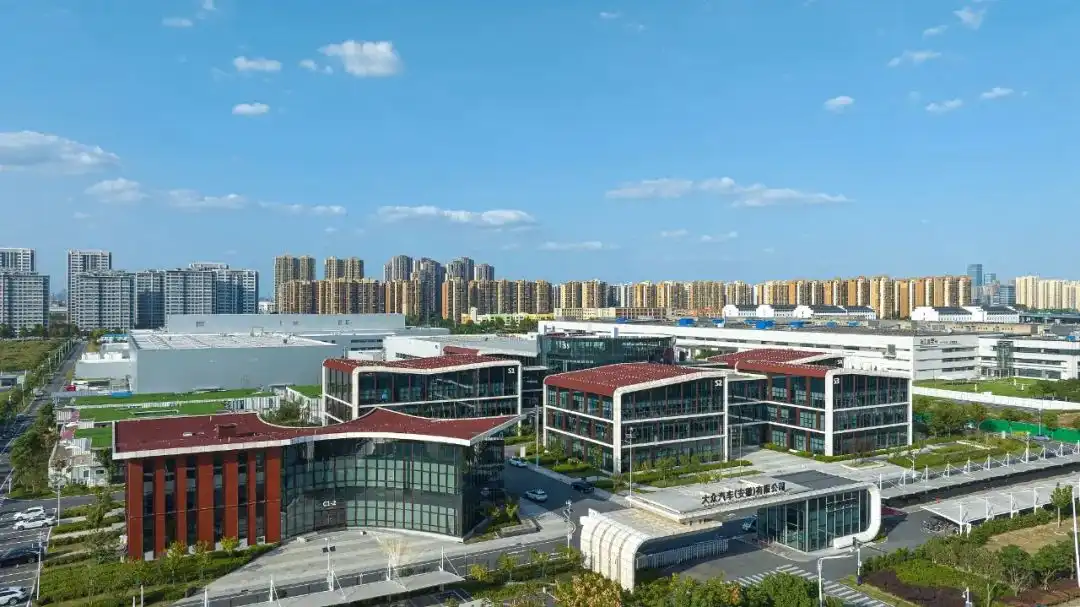
△ Volkswagen (Anhui) Co., Ltd. R & D and production base
These continue the consistent positive attitude of German companies in investing in China.
Previously, the "2023/24 Business Confidence Survey Report" released by the German Chamber of Commerce in China showed that 91% of the German companies surveyed said they would continue to take root in the Chinese market and had no plans to leave China; more than half of the German companies surveyed plan to increase investment in China in the next two years.
The "report card" of German investment in China in 2023 is also particularly eye-catching-Germany's total direct investment in China reached 11.9 billion euros, an increase of 4.3% over the previous year, and hit a record high after the high value in the previous two years.
You should know that in 2023, the German economy will decline due to various reasons, and the total amount of foreign direct investment will drop sharply, from approximately 170 billion euros in 2022 to 116 billion euros in 2023. Under such circumstances, German investment in China rose from 11.5 billion euros to 11.9 billion euros. This will also bring German investment in China to 10.3% of Germany's total overseas investment in 2023, the highest level since 2014.
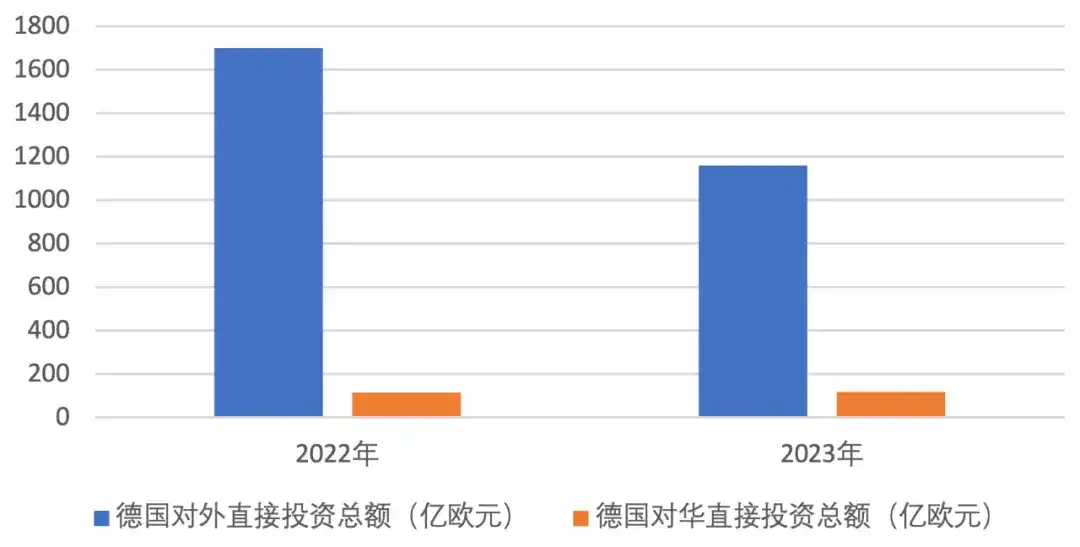
Such a rise against the trend further highlights the confidence of German companies in investing in China.
Last year, large German companies such as Volkswagen, Mercedes-Benz, BMW, BASF, and Siemens withstood the pressure and rushed to continue to increase investment in China. Among them, Siemens announced that it will invest 140 million euros to expand its factory in Chengdu, China, and large chemical company BASF plans to invest up to 10 billion euros in China by 2030, etc.
可以说,在中德经贸合作中,大企业一直发挥重要作用,它们深耕中国市场多年,致力于挖掘合作潜力和动力。此次企业界随访,不仅利于维持中德经贸关系的稳定性,也展现出朔尔茨和德国企业界希望抓住中国扩大开放的机遇,与中国长期保持合作的意愿。 02 See Innovation
Scholz arrived in Chongqing for the first stop of his trip. In Chongqing, his first visit was Bosch Hydrogen Power Systems (Chongqing) Co., Ltd., a joint venture between Bosch Group and Qingling Automobile Group of Germany.
Scholz visited a variety of hydrogen power products and hydrogen fuel cell solutions developed and produced by the company. Under the explanation of the staff, he also experienced the assembly of hydrogen power modules on site with great interest.
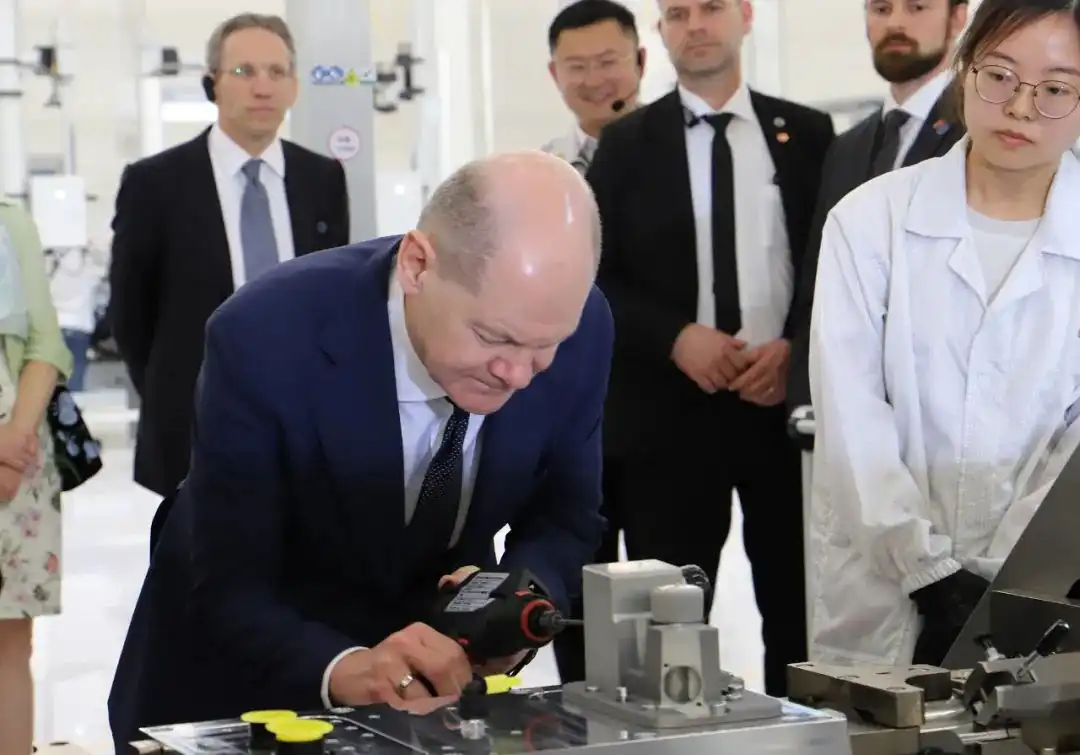
The new factory of Bosch Hydrogen Power Systems (Chongqing) Co., Ltd. will be officially put into use on November 2, 2023, integrating hydrogen power product research and development, testing, production and sales management.
Hydrogen fuel cell vehicles are an important future option for the development of new energy vehicles. In recent years, Chongqing has based on its advantages in hydrogen energy resources and the automobile industry to accelerate the research and development of key technologies and products for hydrogen fuel cell vehicles. At the same time, Chongqing has actively deployed hydrogen production and hydrogenation facilities, continued to expand hydrogen energy applications, and jointly built the "Chengdu-Chongqing Hydrogen Corridor" with Sichuan.
第一个参观点与氢动力和新能源汽车有关,传递出这样一个信息——Germany, which is facing transformation pressure, attaches more importance to consolidating and expanding cooperation with China in the field of innovation.
This can also be seen from the follow-up list that there are many giants in the automobile industry, including Mercedes-Benz Chairman Kang Linsong and BMW Chairman Ziptzer.
At present, new energy vehicles, especially electric vehicles, are an important direction for the development of the global automobile industry. Under the new situation, German automobile companies are seeking transformation. Through long-term efforts, China has become an important gathering place and intelligence in the world for new energy automobile industry chains. The innovation highland of the automobile industry has attracted German automobile companies to further expand their investment and construction in China.
The "2023/24 Business Confidence Survey Report" shows that 51% of German companies surveyed believe that Chinese companies are currently innovation leaders in their industries or expect to become leaders in the next five years. In the automotive industry, as many as 69% of respondents hold this view.
Just in February this year, the new joint venture between Mercedes-Benz (China) Investment Co., Ltd. and BMW Brilliance Automotive Co., Ltd. was approved, and BMW and Mercedes-Benz jointly planned the Chinese electric vehicle market.
Previously, BMW Group also announced that it will launch a new generation of pure electric models in Shenyang starting in 2026. At the same time, the supporting BMW sixth-generation power battery project started in full swing, with a total investment of 10 billion yuan. In addition, the second phase expansion project of BMW Shenyang R & D Center has also been officially launched, further strengthening BMW's full-process development and verification capabilities of localized new energy vehicles.
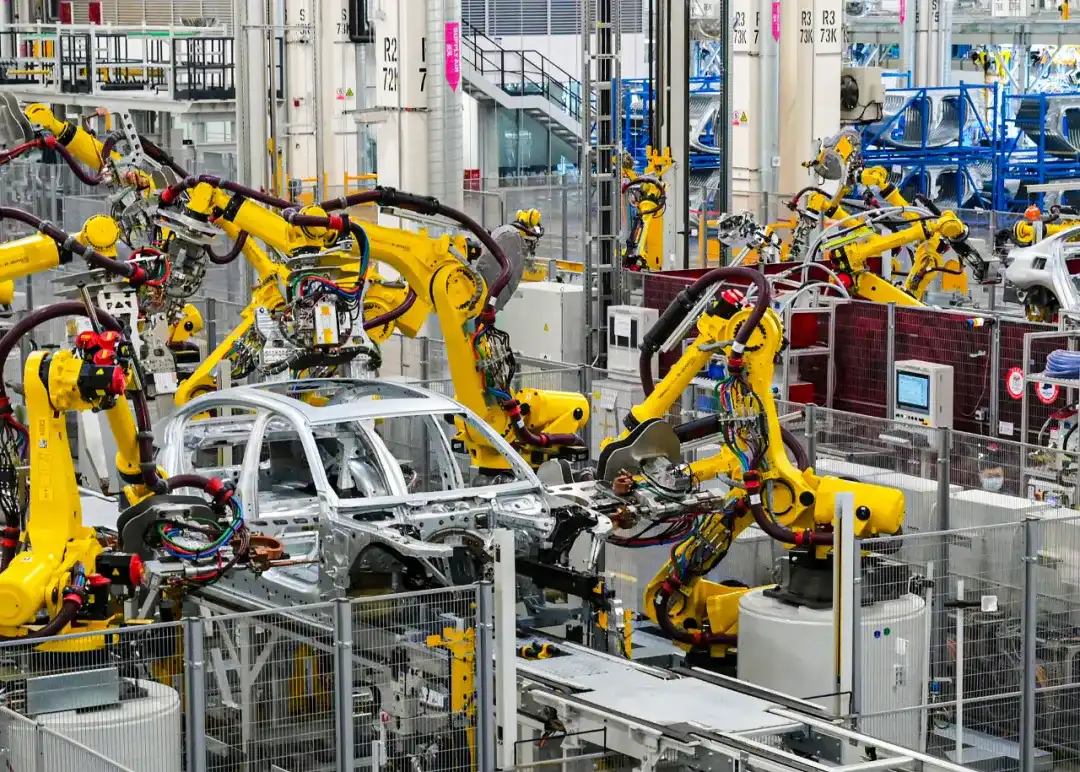
△ Shenyang, BMW Brilliance Lida Factory.
Volkswagen Group, which just invested an additional 2.5 billion euros in April this year, is also aiming to cooperate with China in the field of new energy vehicles.
According to reports, Volkswagen Group will produce two Volkswagen brand models jointly developed with Xiaopeng Motors in Hefei, the first of which is scheduled to be put into production in 2026. According to the plan, by 2030, Volkswagen Group brands will provide more than 30 pure electric vehicles in the Chinese market.
Since last year, the European Union has launched a so-called "countervailing" investigation into electric vehicles against China, but Sino-German electric vehicle cooperation has "bucked the trend."
Visin, Minister of Transport and Digitalization, who was following this visit, clearly expressed his opposition to the EU's imposition of punitive tariffs on Chinese electric vehicles last year and warned that the German economy would be damaged as a result.
Germany provides technology and China provides production. This has been the model of Sino-German cooperation for a long time. However, as China develops faster and more rapidly and science and technology become more and more developed, Sino-German cooperation is also looking for a new balance point.
而中德在新能源汽车产业上的合作,就是再生动不过的案例——中德双方的合作,并没有陷入零和博弈,而是在充分考虑彼此发展阶段的同时,以建设性的态度追求合作的最大公约数。 03 See cooperation
This year marks the 52nd anniversary of the establishment of diplomatic relations between China and Germany and the 10th anniversary of the establishment of an all-round strategic partnership between China and Germany.
In Sino-German relations, bilateral economic and trade cooperation has always played a "ballast stone" role. Since 2016, China has become Germany's largest trading partner for eight consecutive years, and Germany has also been China's largest trading partner in the EU.
Despite the remarkable achievements of China-Germany practical cooperation, the word "risk removal" has still frequently appeared in German media reports and German official documents for some time.
In July last year, the German federal government adopted the first "China Strategy", positioning China as a "partner, competitor and institutional opponent." The document pointed out that Germany has "serious dependence" on China in some areas, and specifically proposed Germany's measures to reduce risks and strengthen diversification.
The document makes it clear that Germany has no intention of hindering China's economic development or seeking to decouple from the Chinese economy, but at the same time Germany also urgently needs to "de-risk".
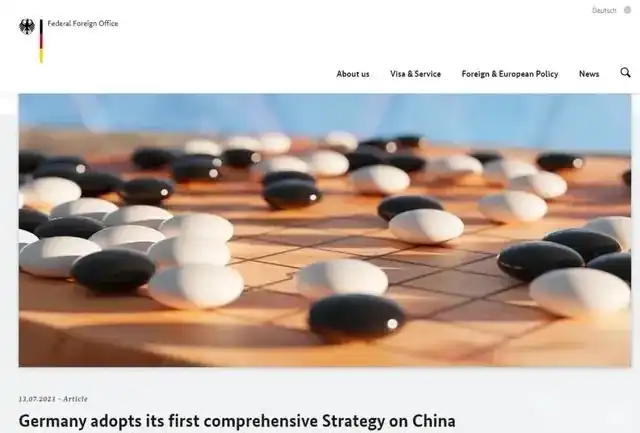
△ Cover picture of Germany's "China Strategy"
In February this year, Scholz also stated again during his attendance at the Munich Security Conference that Germany opposes protectionism, opposes decoupling and disconnection, welcomes China's development and revitalization, and is willing to provide a high-quality business environment for other countries 'companies in Germany.
Although Germany has repeatedly emphasized that it does not seek to decouple from China, the negative signals released by the "risk removal" policy have had a certain impact on Sino-German economic and trade cooperation.
Experts on international issues analyzed that during Scholz's visit to China, one prime minister and three ministers were of high standards, and the three ministers accompanying him had been very friendly to China in their words and deeds. Scholz's visit will send a signal to China that Germany always hopes that China will understand that Germany's so-called "risk removal" does not mean decoupling. It hopes to deepen cooperation in the economic and trade field and work with China to promote the resolution of relevant issues in the field of global governance.
Earlier, the spokesperson of the Ministry of Foreign Affairs also stated that China is willing to use this visit with Germany as an opportunity to enhance understanding and trust, deepen practical cooperation, uphold the principles of mutual respect, equal treatment, mutual benefit and win-win results, and seek common ground while reserving differences, and promote greater China-Germany relations. Development.
In fact, in the past two years, high-level exchanges between China and Germany have been very close.
In November 2022 and June 2023, leaders of China and Germany successfully exchanged visits.
In June 2023, China and Germany held the seventh round of government consultations, and heads of as many as 22 departments held counterpart consultations.
In October 2023, the third China-Germany High-level Financial Dialogue was held in Germany, and the two sides reached 25 cooperation consensuses in the financial field.
Just two days ago, on April 11, 2024, the China-Germany Financial Cooperation Dialogue Forum was held in Beijing.
China and Germany are both representatives of major manufacturing countries and have always explored an enlightening interactive path for Western developed countries and emerging economies to get along.
In the process of interaction between the two major countries in the east and west, it is inevitable that there will be some minor incidents, but "risk reduction" and "dependence reduction" should not turn into "de-cooperation" and "level reduction".
On the occasion of the 10th anniversary of the establishment of an all-round strategic partnership between China and Germany, Scholz's visit undoubtedly sends a positive signal of Sino-German cooperation. China's attitude is consistent and always regards Germany as an important partner for win-win cooperation.
Starting from a new starting point, demolishing walls, building roads, moving more and moving towards each other, China-Germany relations will surely move steadily and far on a healthy track.
▌
